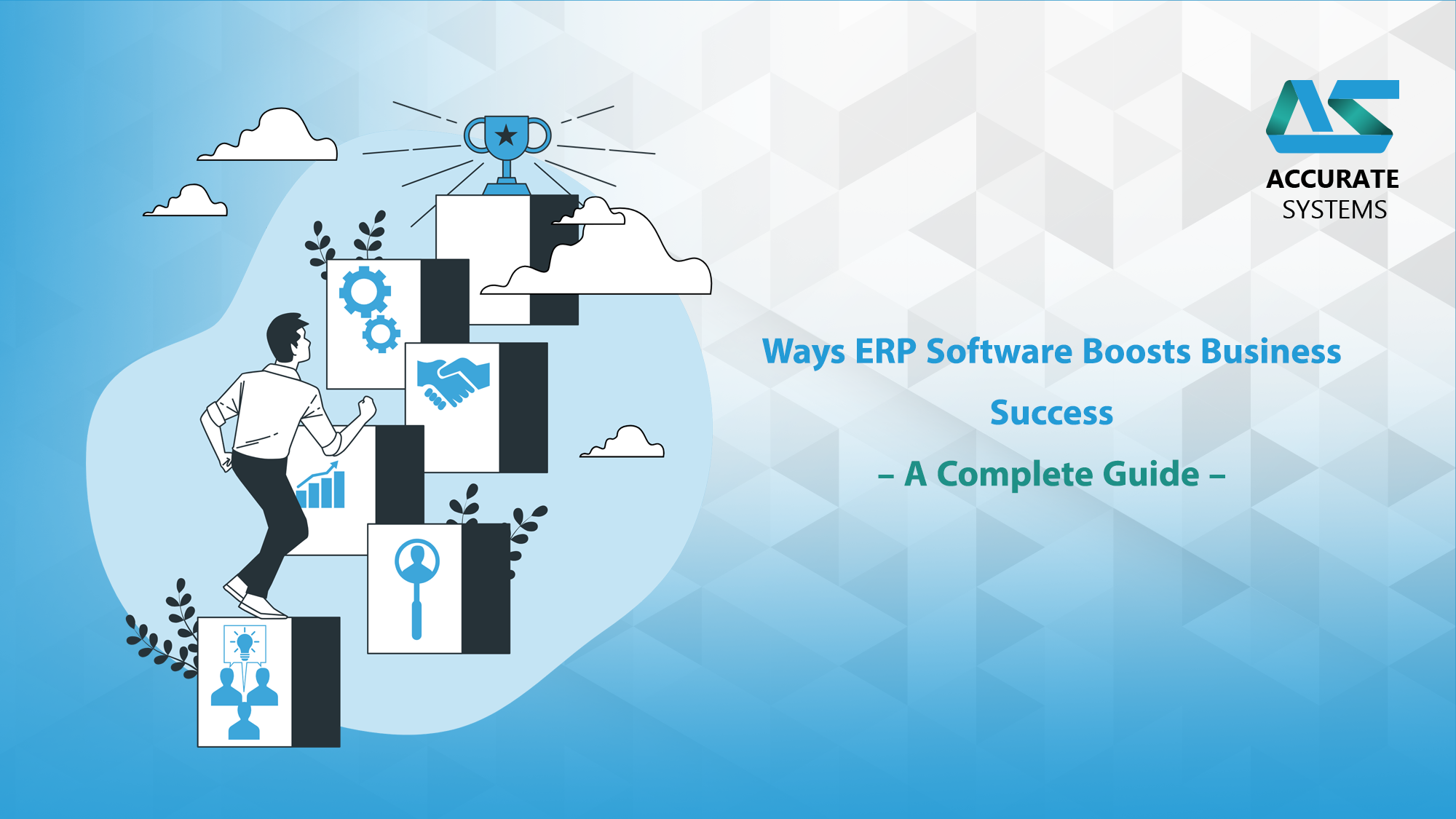Introduction
Enterprise Resource Planning (ERP) software is a game-changer for businesses looking to streamline operations, enhance efficiency, and drive growth. By integrating various business functions into a single platform, ERP systems help companies optimize performance, reduce costs, and improve decision-making. In this comprehensive guide, we explore how ERP software contributes to business success and why implementing it is a smart move for your company.
1. Enhancing Operational Efficiency
One of the biggest advantages of ERP software is improved efficiency. By automating routine tasks and centralizing business data, companies can eliminate redundancies and enhance productivity.
✅ Process Automation: Reduces manual work and minimizes human errors.
✅ Data Synchronization: Ensures all departments have access to real-time information.
✅ Standardized Workflows: Improves task management and operational consistency.
2. Improving Data Accuracy & Informed Decision-Making
Accurate, real-time data is crucial for business success. ERP software consolidates information from different departments, ensuring data consistency and reliability.
🔍 Real-Time Analytics: Gain actionable insights for better business decisions.
📊 Integrated Business Intelligence: Supports data-driven strategies.
📈 Predictive Forecasting: Helps plan for future business trends.
3. Strengthening Financial Management & Compliance
ERP solutions simplify financial processes, making it easier for businesses to manage budgets, track expenses, and comply with regulations.
💰 Automated Accounting: Eliminates errors and ensures transparency.
⚖️ Regulatory Compliance: Meets industry-specific and governmental regulations.
📉 Cost Optimization: Provides insights for better financial planning.
4. Optimizing Supply Chain & Inventory Management
Managing inventory and supply chains efficiently is key to reducing operational costs and meeting customer demands.
📦 Inventory Control: Prevents overstocking and shortages.
📈 Demand Forecasting: Uses data to predict future inventory needs.
🤝 Supplier Management: Enhances vendor relationships and procurement processes.
5. Enhancing Customer Relationship Management (CRM)
ERP software helps businesses improve customer experiences by integrating CRM tools.
👤 360-Degree Customer View: Centralized customer data for personalized service.
📞 Faster Support Response: Reduces resolution time and increases satisfaction.
📊 Customer Insights: Helps understand preferences and behavior patterns.
6. Enabling Scalability & Business Growth
ERP systems are built to grow with your business, ensuring long-term success.
🚀 Cloud-Based Flexibility: Enables remote access and global expansion.
🌍 Multi-Location & Multi-Currency Support: Ideal for international businesses.
🔄 Modular System: Easily adds new features as needed.
7. Strengthening Security & Risk Management
Protecting business data is a priority. ERP solutions offer advanced security measures to prevent data breaches and unauthorized access.
🔐 Role-Based Access Control: Ensures only authorized users can view sensitive data.
🛡️ Data Encryption & Backup: Reduces risks of cyber threats and data loss.
✅ Regulatory Security Compliance: Adheres to global security standards.
8. Boosting Employee Productivity & Collaboration
ERP software enhances teamwork and collaboration by providing employees with the tools they need.
📢 Centralized Communication: Improves cross-departmental coordination.
📱 Mobile & Remote Accessibility: Increases workforce flexibility.
🔧 User-Friendly Interfaces: Simplifies adoption and usage.
Conclusion
Implementing ERP software is a strategic move that enhances efficiency, improves decision-making, and boosts business growth. With features like automation, real-time analytics, supply chain optimization, and security compliance, ERP solutions empower businesses to stay ahead in a competitive market.
Is your business ready for the next level of success? 🚀 Invest in a powerful ERP system today and experience the transformation!


